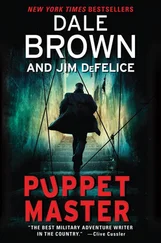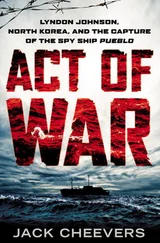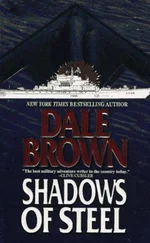“And are there any restrictions to the movement of properly credentialed military persons on and off the base?”
“Not at this time, sir.”
“Then I want you to find a vehicle and a couple of men and pick up as many pizzas as you think we’ll need for all the personnel here for lunch and dinner,” Jason said. He pulled out his wallet and handed him a credit card. “That should take care of it. Make mine pepperoni and sausage. And scout around to find out what other restaurants are nearby—even I will get sick of pizza.”
Jefferson blinked in surprise, but his voice never wavered: “Yes, sir,” he responded. He motioned for a soldier working nearby to make the arrangements.
“It’s understandable that you want to be fed and clean, Major,” Kelsey said impatiently, “and I think it’s cute how you’re trying to take charge here like this, but we really don’t have time…”
“Agent DeLaine, as I said, I don’t want tired, hungry, cranky people working around my weapon systems,” Jason said. “You may think it’s ‘cute’ that I’m trying to look out for the men and women who are stuck out here, but even us Officer Candidate School ‘ninety-day wonders’ learn to take care of our people first. I assume if my latrine and meals were screwed up, everybody else’s is too. Am I wrong? Did you have a hot shower and breakfast this morning, Agent DeLaine?”
“No, but we…”
“Sergeant Major, did anyone here have a hot shower and hot meal here this morning?”
“No, sir. None of the personnel that arrived last night had either. I cannot speak for the base personnel assigned to us by the Air Force.”
“There you go—an invitation to disaster,” Jason insisted. “Any other complaints, Agent DeLaine?” He didn’t give her an opportunity to answer. “Good. Next item: I want coffee, and I want a target,” Jason said.
“A target?”
“Coffee first, and then I want to find out who and what to hit first,” Jason repeated. Kelsey looked as if she was ready to protest again, so he turned back to Jefferson. “Sergeant Major, where’s the damned coffee?”
“Right this way, sir,” and he headed off toward a small office inside the hangar.
“Hey, wait a minute!” Kelsey protested. “We need to have a meeting first! We have a staff to organize. We need progress milestones, a timetable, set up a daily report…”
“Why don’t I leave that up to you?” Jason suggested over his shoulder to Kelsey. “I think all we need is some fresh intel and a plane that’ll get us to wherever the bad guys are. CID will do the rest.”
Jefferson led the way to the coffee—actually an old metal percolator half-full of boiling water on an even older hot plate, with Styrofoam cups and packets of instant coffee from MRE kits strewn about—but stopped before entering. “I think Special Agent DeLaine is right, sir,” he said. “We’ve got a mixed task force here—civilians, military, Army, Air Force—that has never trained or fought together before. We should take the time to organize and plan strategies before we head off into the field.”
“How many agents and soldiers were we given, Sergeant Major?” Jason asked.
“I have a support staff of three, a security staff of six, plus two Special Forces instructors here with me, sir,” Jefferson replied. “We have two staff officers, one from the Marine Corps and one from the Air Force. Agent DeLaine has one FBI intelligence officer with her.”
“Doesn’t seem to me that we have anybody to plan or train with.”
“The typical procedure, sir, is to build a game plan—a TO&E, or Table of Organization and Equipment—and then requisition the personnel, weapons, and equipment we’ll need to execute the plan,” Jefferson said evenly, like an impatient teacher explaining an important point to a rambunctious teenager. “We can’t move forward without a plan. I believe Mr. Chamberlain is prepared to give us anything we need to make this task force mission-ready. But we have to tell him what we need first, and the best way to do that is to sit down and make some decisions.”
“The ‘typical’ procedure,” Jason repeated. He could see that Sergeant Major Jefferson was unaccustomed to being questioned as to how things should be done. Jason turned and motioned toward the C-130 and his two Humvees in the hangar. “I believe we have everything we need right there, Sergeant Major,” he said. “Let’s load it up and get the bad guys.”
Sergeant Major Jefferson took in a lungful of air and looked for all the world like he wanted to start barking at Richter; Kelsey quickly interceded before he did. “Let’s try it our way, okay, Jason?” she asked. “This is our first full day here. Let’s come to an agreement on how we want to proceed, come up with a workable plan, then upchannel it to Chamberlain. If we’re together on the plan, it’ll stand a good chance of getting approved.” Jason looked as if he was going to keep arguing, so Kelsey let her voice rise a bit. “I think the sergeant major and I have a bit more experience in organizing, training, and employing a task force than you do, Major. Try it our way for now, all right?”
Jason saw Ari enter the hangar, now wearing a dark blue warm-up suit, still a little groggy, and decided he wasn’t going to get much help from her yet, so he nodded. “Okay,” he said. “Let’s go meet with the staff and talk.” He endured Jefferson’s exasperated scowl as they exited the little office and headed for the conference room in the main hangar.
Two officers already in the room got to their feet and called the room to attention when Jason walked in. Kelsey took the head of the table; Sergeant Major Jefferson sat on her right. As expected, the two officers stared at both Kelsey and Ari, not expecting two women to be involved in this project. “As you were, guys,” Jason said. He stepped over to the first guy and extended a hand. “Jason Richter.”
“Frank Falcone,” he responded, shaking hands. He was an Air Force captain, mid-to late twenties, with very close-cropped hair to mask his early baldness. He was of above average height, maybe a little on the heavy side, and walked with a noticeable limp. “I’ve been assigned as your operations and intelligence officer.”
“Your second in command, sir,” Jefferson said. “Special-operations experience during Operations Enduring Freedom and Iraqi Freedom.”
“Fifty-seven sorties in central Asia in MH-53Js,” Falcone said, “and sixteen in the Iraqi theater before I took an SA-7 in the face.”
“That how you got the limp?”
“The crash took out most of my left thigh and hip,” Falcone said. “I was in Walter Reed and various other hospitals for eight months. After rehabilitation and recertification, I went to Air Force Special Operations Command Headquarters at Hurlburt Field for three months in plans and operations before being assigned to the task force.”
“First Lieutenant Jennifer McCracken, sir,” the woman next to Falcone, a Marine Corps lieutenant, said. She was shorter than Richter, with ear-length straight brown hair, thick glasses, not athletic-looking but sturdy—a female Marine who didn’t look too feminine but didn’t want to look like one of the guys either. She had a firm handshake—a little too firm, Jason thought, as if she thought she had something to prove to her temporary army boss. “Logistics officer, Headquarters Battalion, First Marine Division, Marine Depot Twentynine Palms. I’ll be your adjutant and logistics officer.”
“As you can see, sir, we had to double up on your typical staff assignments because of time constraints,” Jefferson pointed out. “I think we can overcome any difficulties we encounter.”
“You three represent three more staff persons than I’m accustomed to,” Jason admitted. He turned to Ari, who was making faces as she tried to drink a cup of the instant coffee. “This is Dr. Ariadna Vega, the lead design engineer and team leader at the Infantry Transformational BattleLab, Fort Polk, Louisiana. She is also my adjutant, logistics assistant, cleanup gal, and chief cook and bottle washer. Take seats and let’s get going.”
Читать дальше












